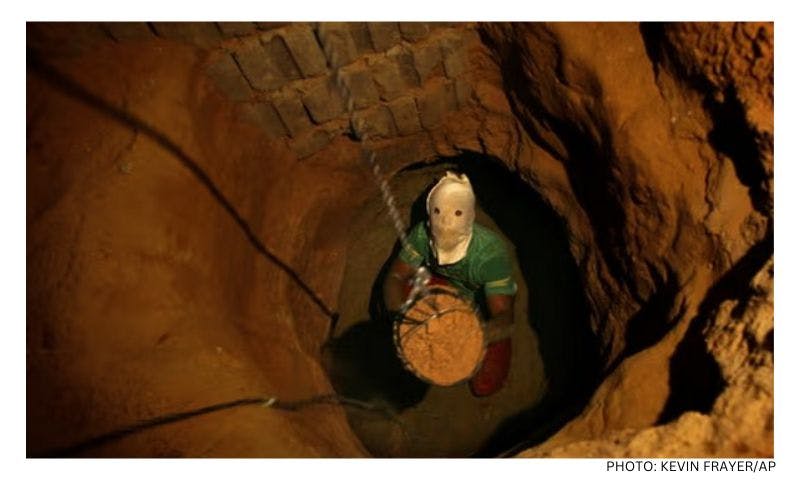Published: 24 August 2021
Last updated: 4 March 2024
As the influence of progressive voices becomes clearer, and reforms unveiled, the new government has given OSCAR KASPI-CRUTCHETT hope for Israel’s future
IN A WORLD DOMINATED by conservative forces, progressives engage with politics through critique. Painfully aware of all the injustice in the world, they are quick to point out what is missing, call out the wrongs and name who or what is being left behind. Living in opposition, they are most comfortable in the role of the critic.
In Israel especially, that readiness to criticise is misunderstood as a sign of insufficient patriotism or simply a whiney disposition. They defend themselves by arguing that it is they who are the real patriots in daring to criticise the country into improving itself. While heart-warming, this is not the whole story.
When a political faction is denied power for too long, it grows resentful. As its needs are ignored, and its priorities dismissed, its temperament descends into the purely negative, into a swamp of unshakeable pessimism.
After years of fruitless elections, cutting betrayals, false-hopes and fizzled saviours, the Israeli Left has retreated into a protective cocoon of cynical hopelessness. I see this everywhere and I see it in myself. There is a saying that whilst the Right falls in line, the Left falls in love. Our hearts have been broken one time too many, and we’ve resigned to a hardy sphere of low expectations and permanent critique, sheltering us from the pain of yet another dashed hope.
For some, the years of defeat have mutated forgivable readiness to criticise into a complaining, paralytic nihilism: the settlements are too numerous, the world detests Israel, the country is irreparably evil, everyone is a sell-out, there is no hope, the country has gone to the dogs.
I have had it with such moaning. I am ready to leave the cocoon.
The 'Change Government' constitutes the most substantive source of hope for the Israeli Left in my lifetime.
The “Change Government” constitutes the most substantive source of hope for the Israeli Left in my lifetime.
As much as I understand the suspicions so widespread among my kin, I fear they have become excessive. It is time to retire the doomsday commentary about the newcomer being “just as bad”’ as his predecessor.
There is only one man standing between Israel and the abyss; one man between us and an abominable future of global pariah status and the accelerating decay of Israeli democracy. As much as it pains me to say it, that man is a former high-tech multimillionaire and former lobbyist-in-chief for the settlements as the head of the Yesha Council, named Naftali Bennett.

Bennett is the awkward face of a government dominated by the centre, the Left and the Islamist Ra’am party, which collectively outnumber the right-wing MKs by two to one. We must pause to let this percolate. If we dare to look over Bennett’s shoulder, we can see that this is more than the denial of another term for King Bibi: it’s theend of the right-wing monopoly on power.
This is not petty news. This is not window dressing. The country has turned a corner.
At last, there are people in Cabinet eager to put progressive, liberal priorities back on the agenda. Labor secured commitments to gender equality and LGBT rights, on top of the establishment of a new department in the Diaspora Affairs Ministry to repair ties with liberal Jews abroad.
The Meretz party locked in a prohibition on any future unilateral measures on the Palestinians, as well as a pledge to act on climate change and educate Israeli students on the values of democracy and peace.
With time, the influence of progressive voices in the government has only become clearer. The proposed budget will contain a tax on disposable plastics, an 85% emissions reduction target, reduced wait times for gender reassignment surgery, subsidised university for veterans, increases to the aged pension, sixteen billion shekels to the Arab community and a generous handout to first home buyers.
Yet that is not the end of it. They pushed further. The Change Government is pursuing a raft of policies that could disrupt the existing concentrations of power in Israeli society. Years of pent-up grievances are finally being given voice, and a deluge of long-overdue secularisation is being unleashed.
The Rabbinate’s monopoly on Kashrut is to be broken, judicial appointments are to be tilted in favour of elected officials and women, supermarkets and public transport will operate on Shabbat, core curriculum subjects will be taught in all Israeli schools, the Western Wall is to be opened to greater diversity of worship.
At both the humblest and the highest levels, gates of exclusion are creaking open. For the first time in two decades, the left-wing Meretz party sits in the Cabinet, and not sidelined with an ineffectual deputy post but with the ministries of Health, Regional Co-operation, and Environment. Labor holds Public Security, Transport and Diaspora Affairs.
The Rabbinate’s monopoly on Kashrut is to be broken, judicial appointments are to be tilted in favour of elected officials and women, public transport will operate on Shabbat.
For the second time in history, the Israeli Cabinet also now includes a Muslim. More women now serve as ministers than in any Government since 1948. Alone, each of these milestones can seem like pleasant niceties. Diversity platitudes. Taken together, with the broader picture in mind, they constitute nothing less than a history-making break with precedent.
Despite all this, the occupation is not going anywhere. Until this occurs, I say let the critiques flow. However, even with regards to the Palestinians, there is hope to be found in this government.
Israeli Ministers are finally meeting with the Palestinian counterparts, seeking co-operation on civilian and security matters. For the first time since 2009, the Israeli Palestinian Joint Economy Committee is back in session. Several ministers have begun publicly stressing the “mutual benefits” of Palestinian economic development for Israel.
Even Netanyahu’s former protégé, Gideon Sa’ar, has floated the prospect of a railway project connecting the West Bank city of Jenin to Haifa, granting port access to the Palestinians under Israeli supervision. Some 16,000 new work permits have been granted to Palestinians seeking employment in Israel.
Defence Minister Benny Gantz recently sat down with Meretz MKs to discuss settler violence and settlement expansion. Could we imagine such a meeting occurring during the Netanyahu years?
All of this is not enough. Anything short of sovereignty and self-determination for the Palestinians is not enough – but this is something. This is a step. At the very least, the revanchists and their annexation ambitions have been stopped in their tracks.
Still, the occupation is not going anywhere. Until this occurs, let the critiques flow. However, even with regards to the Palestinians, there is hope to be found.
And if Bennett falls, Merav Michaeli, Nitzan Horowitz or Aymen Odeh will not be taking his place. We all know how this will end: with all progress evaporated and the disgraced monarch restored. Netanyahu and his ilk are incensed by this government for a reason. They see its potential to turn Israel around.
New times require new mentalities. Disappointment by default and resentment by reflex will only sap our energy and leave us miserable. The time has come to rediscover an alternative guiding principle, one long since forgotten, but never needed more: hope.
Photo: Prime Minister Naftali Bennett and Transport Minister Merav Michaeli in the Knesset (Yonatan Sindel/Flash980)




